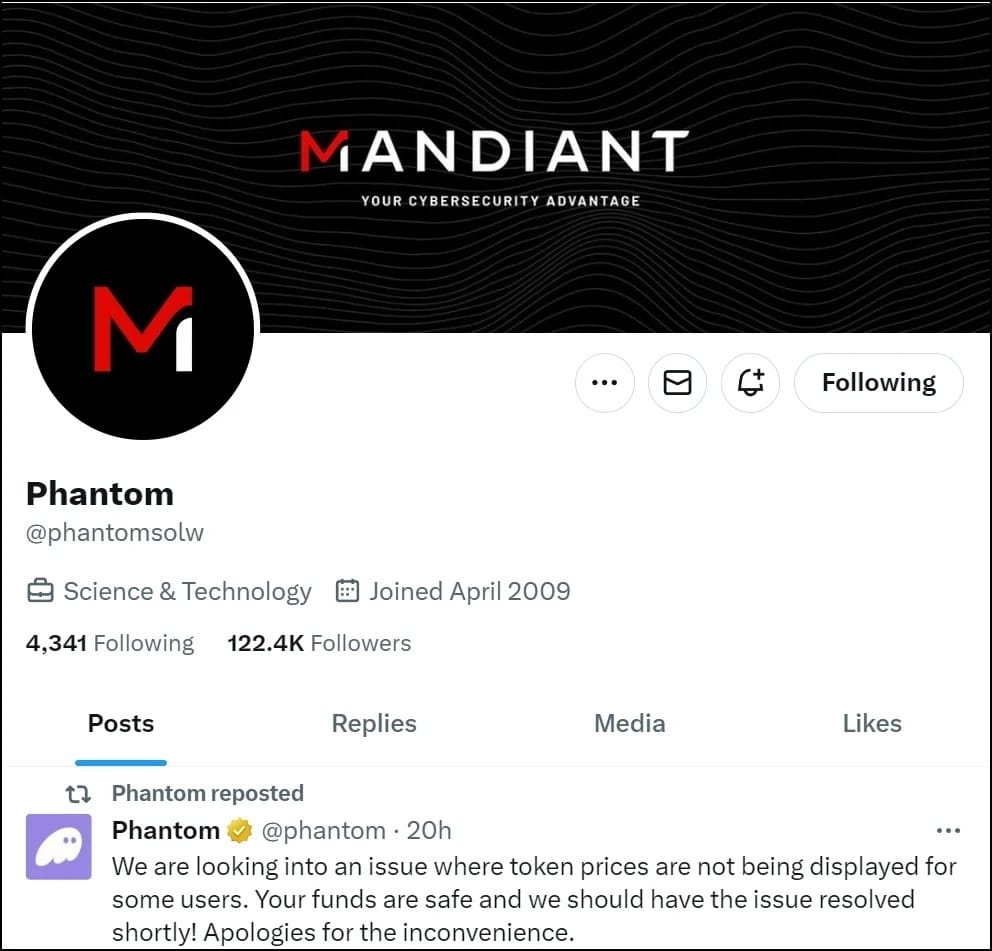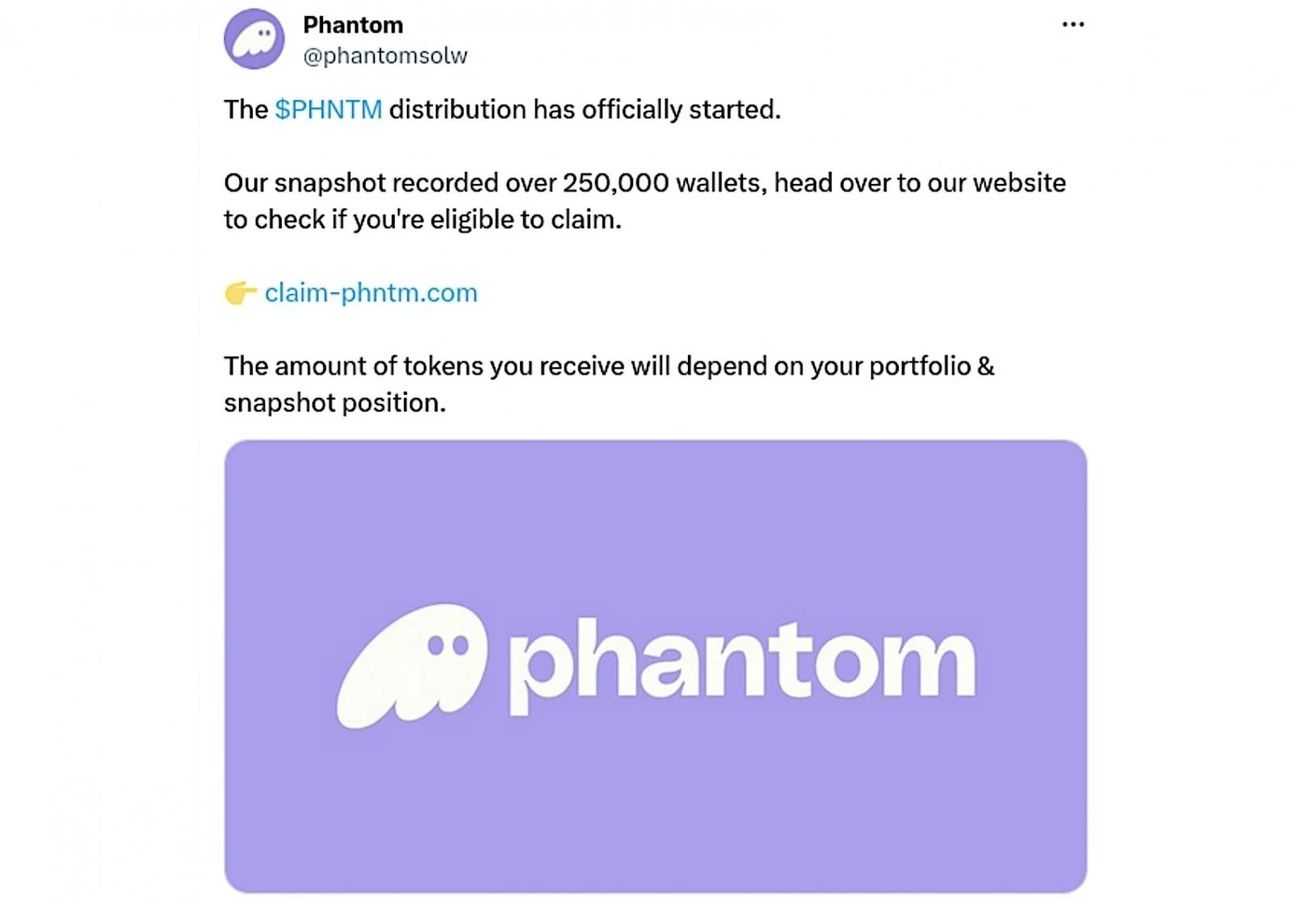Good Morning Tech Enthusiasts! First up for today, Qualcomm's chip vulnerability opens the door to potential remote attacks, a stark reminder of the evolving cybersecurity landscape. Then, Mandiant's Twitter account falls prey to a clever crypto scam, underscoring the ongoing battle against digital fraudsters. And finally, South Korea's Orbit Bridge suffers an $80 million hack, a heist that reads like something straight out of a cyber-thriller. Stay tuned as we dive into these stories, bringing you the latest and most crucial updates in the world of tech.

Mandiant's Twitter Mishap: Hacked for Crypto Scam
Cybersecurity giant Mandiant, a subsidiary of Google, faced an ironic twist today when its Twitter account was compromised. The attackers swiftly transformed it into @phantomsolw, masquerading as the Phantom crypto wallet. Their agenda? Promoting a fraudulent website offering free $PHNTM tokens in a classic airdrop scam.


Mandiant acknowledged the breach, stating, "We are aware of the incident impacting the Mandiant X account and are working to resolve the issue."
The scam was cleverly engineered. Clicking the 'Claim Airdrop' button redirected unsuspecting users to install the Phantom wallet, which then attempted to drain their existing cryptocurrency funds. Thankfully, Phantom Wallet was quick to respond, flagging the website as a phishing attack and blocking interactions to safeguard users and their assets.
In a brazen move, the attacker, post-scam, trolled Mandiant with messages like "Sorry, change password please." They even retweeted official Phantom posts about safe crypto practices, likely aiming to lend credibility to future scams.
As of the latest update, Mandiant has regained control of their account, yet struggles with lingering Twitter restrictions, evident from the unchanged username '@phantomsolw'.
Takeaway: This incident underscores the persistent vulnerability of even the most security-savvy organizations to cyber threats, especially in the volatile realm of cryptocurrency.

The $80 Million Heist: Orbit Bridge's New Year Nightmare
In a chilling start to 2024, South Korea’s Orbit Chain suffered a massive $80 million loss due to a bridge hack, a stark reminder of the dangers lurking in the realm of cryptocurrency.



The heist, exploiting a vulnerability in multisig (multi-signature) security, saw the hacker gaining control over seven out of ten key signatories. This breach led to a staggering loss of various digital assets, including stablecoins like USDT, USDC, and DAI, along with 231 WBTC and 9,500 ETH.
Orbit Chain, not to be confused with Orbiter Finance, faced this attack due to compromised private keys, a recurring theme in the crypto world. In response, they've urged cryptocurrency exchanges to freeze the stolen assets and are collaborating with law enforcement to trace the lost funds. They're also cautioning users against engaging with fraudulent reimbursement claims.
This isn't the first time Ozys, the parent company behind Orbit Bridge, has faced such a breach. Their other projects, KlaySwap and Belt Finance, have previously experienced similar attacks, raising questions about their security protocols.
The costly consequences of private key compromises are significant, as highlighted by security firm Quantstamp. Last year, such incidents accounted for nearly half of all financial losses in the sector, totaling around $880 million across 47 events.
This incident serves as a sobering reminder of the inherent risks in the digital asset space and the importance of robust security measures.

Qualcomm's Chip Vulnerability: A Call for Concern
On New Year's Day, Qualcomm disclosed a critical vulnerability, CVE-2023-33025, potentially enabling remote attacks through malicious voice calls over LTE networks. The bug, with a high CVSS score of 9.8, is a buffer overflow flaw in the data modem that occurs during non-standard Voice-over-LTE (VoLTE) calls.
This vulnerability, which affects popular chipsets like the Snapdragon 680 and 685, could allow remote code execution (RCE) if an attacker manipulates the Session Description Protocol (SDP) body and initiates a call. Qualcomm, however, reassures that exploitation would be challenging, requiring control over the LTE network.
A total of 26 vulnerabilities, including four critical ones, were listed in Qualcomm's January 2024 security bulletin. OEMs using Qualcomm chips have received patches, and the flaw will be included in the January 2024 Android security bulletin.
Additional critical vulnerabilities were also disclosed. CVE-2023-33036 risks permanent disruption of hypervisor software, while CVE-2023-33030 and CVE-2023-33032 involve memory corruption in the operating system and ARM TrustZone Secure OS, respectively.
Users of devices with affected Qualcomm chips are advised to contact manufacturers for patch information and apply all available updates, highlighting the constant vigilance needed in today's interconnected digital world.
